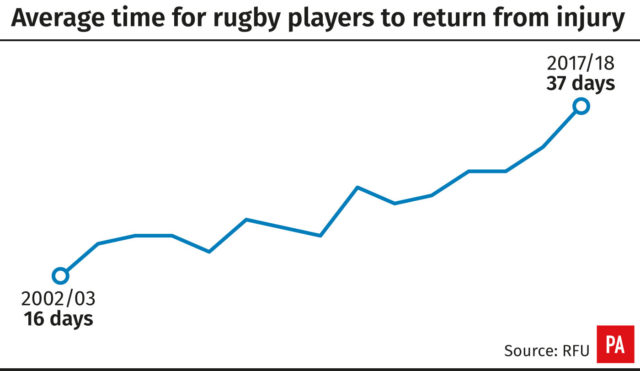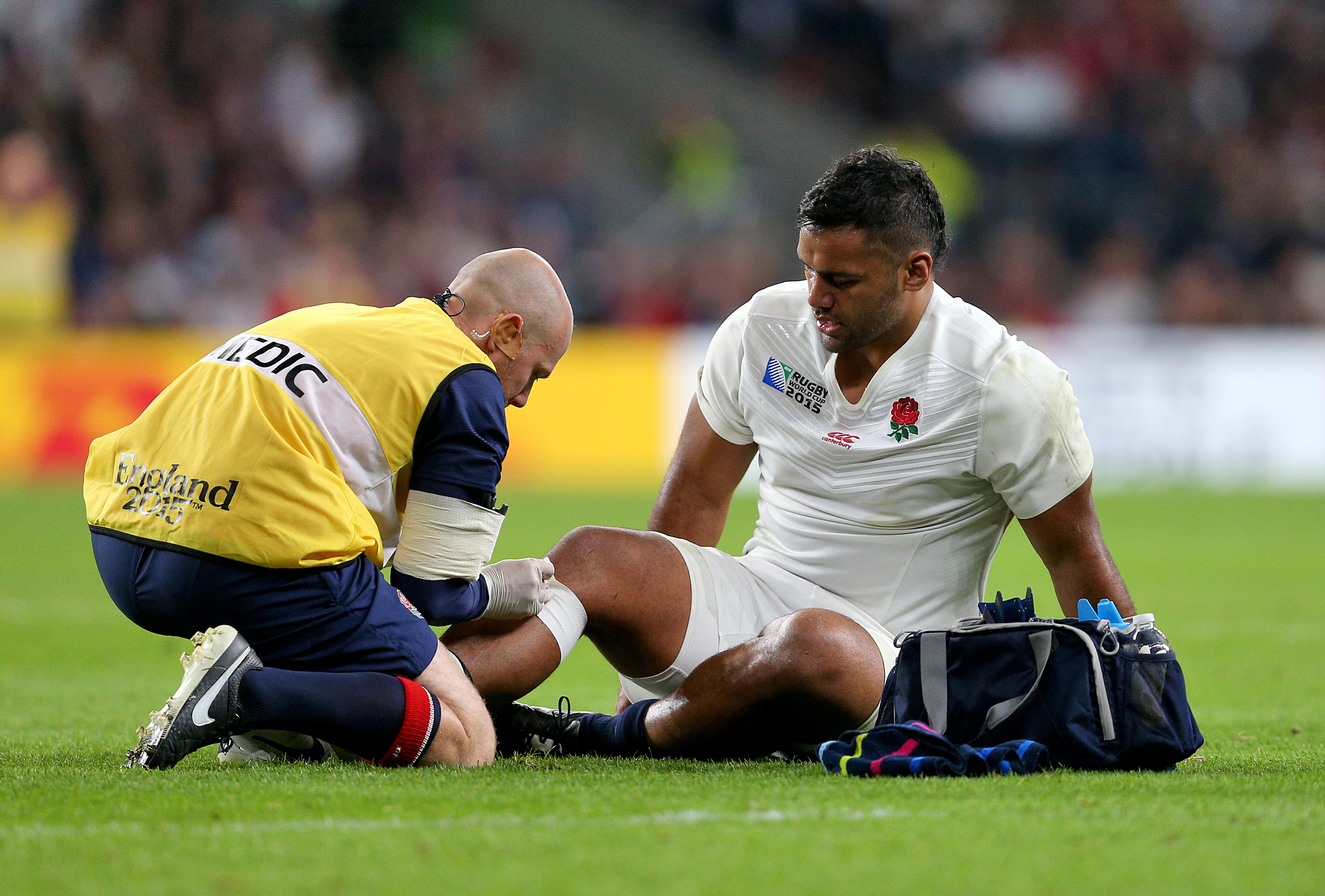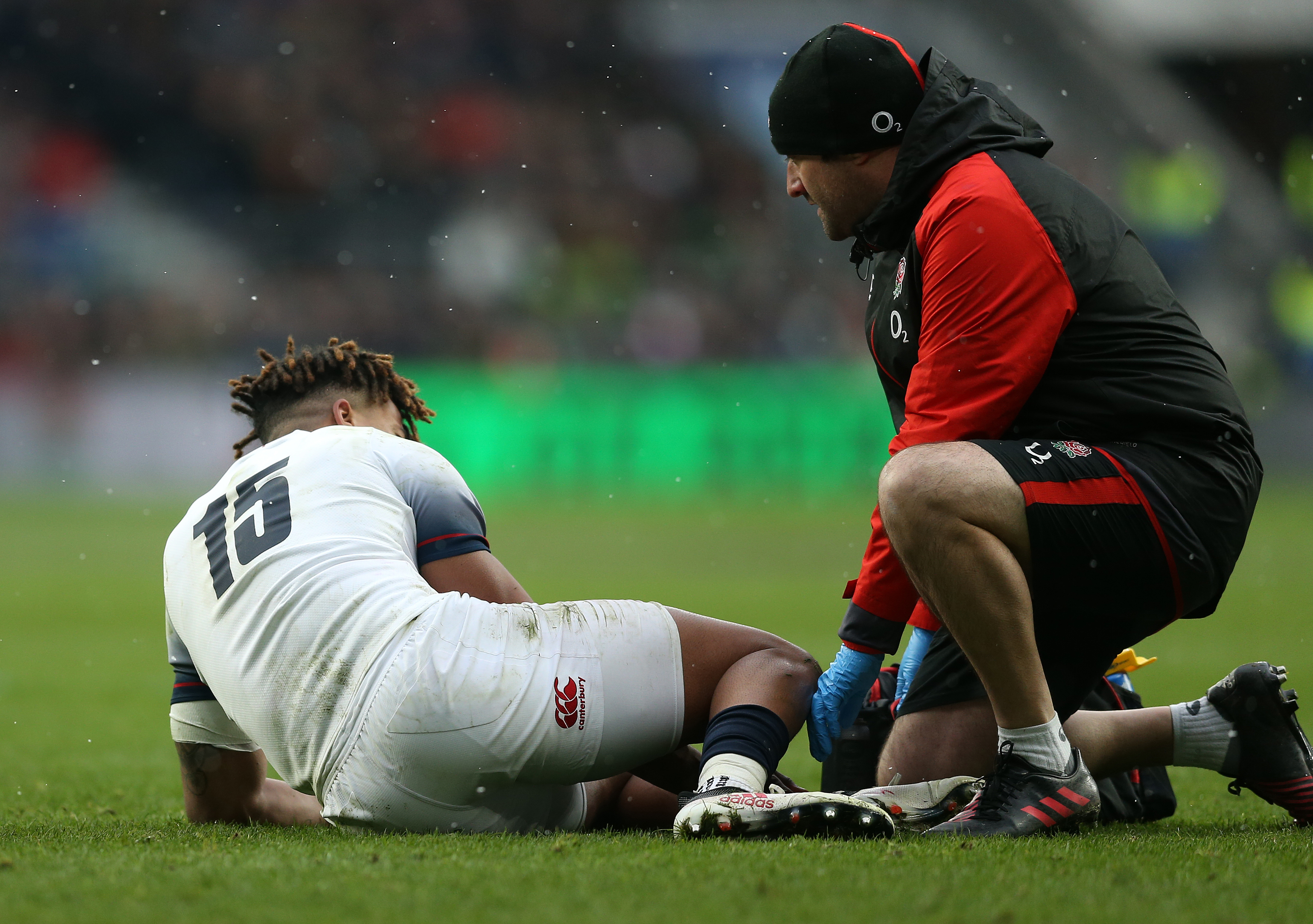English rugby's head of medicine admits the game may face "significant changes" in order to address an alarming rise in injury severity.
Data from the annual injury audit for 2017-18 compiled by the Rugby Football Union has revealed that while the frequency of match injuries is lower than for the previous season, return to play times have climbed for a second-successive year and now stand at 37 days.
As a result of this increase, the overall burden of match injury – which is a combination of both incidence and severity – now stands at the highest level since Twickenham began records in 2002.
The RFU has released its 2017/18 injury surveillance report. More: https://t.co/SRMKfT6mv9 pic.twitter.com/GKlY8vpQ29 — England Rugby (@EnglandRugby) January 9, 2019
"The data suggests that more significant changes to the game might be needed to reverse these trends," RFU medical services director Simon Kemp said.
Training ground casualties have become an area of concern with the frequency of injury remaining stable, but the severity also climbing to its highest recorded level of 37 days.
In total, 38 per cent of all injuries were incurred during training with concussion the most frequent injury in full-contact sessions.

While the data is for the English game overall – the Gallagher Premiership, English clubs in Europe and England internationals – the report also gives figures for injuries sustained during England training under Eddie Jones.
In 2017-18, there were rises in casualties sustained during rugby skills and strength and conditioning, the former more than double the figure for the overall surveillance period.
The severity of injury sustained has contributed to the increase and this, combined with the small number of England training sessions, has prompted the RFU to advise interpreting the figures "with caution".
However, there is a significant escalation since Jones replaced Stuart Lancaster as head coach at the end of 2015 and last summer the issue was raised by Bath owner Bruce Craig during a meeting of the Professional Game Board.

"We obviously discussed the situation at the PGB a few months ago and what we did as a result of that was look at the transition of players from their club environments into the international environment," RFU acting chief executive Nigel Melville said.
"International rugby is played at great intensity so obviously they train at greater intensity.
"It's early days in managing the transition but we did recognise a problem and we think the situation has improved by working with the coaches and the conditioners.

"It's not just Eddie with the players on the day, it's the pre-training stuff to transition players from one environment to the other. Players get injured for club and country."
For a third-successive year concussion remains the most commonly reported match injury at 20 per cent but there has been a minor reduction compared to 2016-17 with one fewer instance every eight games.
Overall the average absence for each concussion was 19 days, a rise on the previous season due to six concussions where the return to play time was more than 84 days.
ga('create', 'UA-72310761-1', 'auto', {'name': 'pacontentapi'});
ga('pacontentapi.set', 'referrer', location.origin);
ga('pacontentapi.set', 'dimension1', 'By Duncan Bech, Press Association Sport');
ga('pacontentapi.set', 'dimension2', 'd11e91c3-2603-4c37-b1db-ee7d89fdbf6c');
ga('pacontentapi.set', 'dimension3', 'paservice:sport,paservice:sport:uk');
ga('pacontentapi.set', 'dimension6', 'story');
ga('pacontentapi.set', 'dimension7', 'composite');
ga('pacontentapi.set', 'dimension8', null);
ga('pacontentapi.set', 'dimension9', 'sport:rugby-union');
ga('pacontentapi.send', 'pageview', { 'location': location.href, 'page': (location.pathname + location.search + location.hash), 'title': 'English rugby may face significant changes over injuries \u2013 head of medicine Kemp'});






